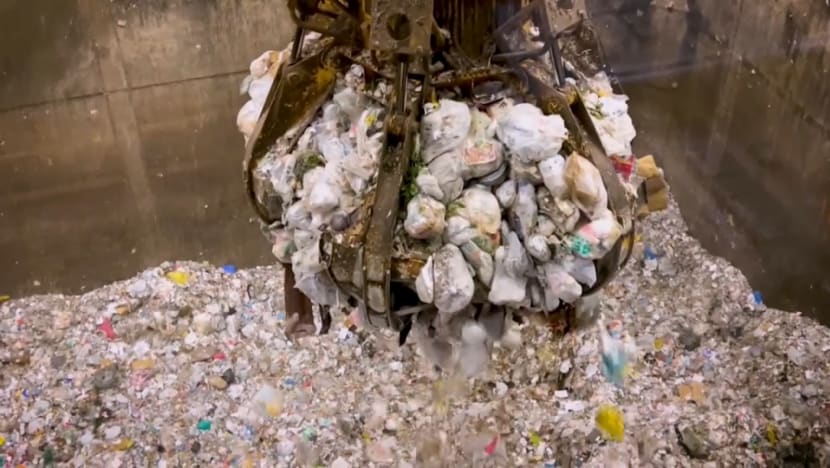Gaia Series 56 : Shin Garbage War
Japanese companies tackle waste management with innovative recycling methods, highlighting both struggles and successes in this week’s episode of Japan Hour.


This audio is generated by an AI tool.
This week’s episode delves into the intricate challenges of waste management in Tokyo and showcases the companies taking innovative approaches to tackle this mounting issue.
The documentary opens in Tokyo's Suginami Ward, where waste collection begins early in the morning. Trucks navigate the city's Loop 8 Highway to reach the Suginami Incineration Plant, a key site for processing the city's combustible waste. Here, the waste is incinerated, reducing its volume by 95 per cent and leaving only ashes, which are then transported to the New Marine Disposal Site, a landfill located in Tokyo Bay. This site, however, is running out of space—a stark reminder of the growing waste management issue in Tokyo.
The Tokyo Garbage War History Miraikan Museum, housed within the Suginami Incineration Plant, offers an insightful glimpse into the history of waste management in Tokyo. Masashi Kawamoto, a representative from the plant, emphasises the importance of learning from past mistakes: "It showcases our history and the lessons we've learned to future generations so they can learn from them in the future."
His words resonate as the episode explores the strained relationships between Tokyo's wards, highlighting how Koto Ward's refusal to accept waste from Suginami Ward spurred the development of advanced waste disposal facilities across the city.
Tokyo's 23 wards, 22 of which have dedicated incineration facilities, exemplify Japan's commitment to reducing waste through high-temperature burning, which not only diminishes odours but also neutralises toxic substances. Incinerating waste reduces its volume to 5 per cent of its original. But even then, disposal sites across Japan are expected to run out of space in approximately 20 years.
The episode then shifts focus to Ota Ward, Tokyo's largest ward by area and home to approximately 740,000 residents. Here, the implementation of a new plastic waste collection initiative is highlighted. The initiative began in October 2023, with separate collection days for plastics and other recyclables. Despite these efforts, the collection process faces significant challenges, including improper disposal by residents and a shortage of labour in the waste management sector.
Enter Odakyu Electric Railway, a major private railway company, which steps in to support the waste collection efforts in Ota Ward. The company, known for its extensive railway network spanning Tokyo to Kanagawa, has ventured into waste management with the establishment of the WOOMS project. This 30-strong team, composed primarily of individuals with railway industry experience, has developed a mobile app to improve the efficiency of waste collection. The WOOMS app, introduced in December 2023, is designed to enhance the collection process by providing real-time updates and route optimisation for collection vehicles.
During a trial run, the WOOMS app proves its worth as it helps optimise the collection route, reducing the need for additional trips and minimising operational burdens. As one of the collectors notes, "When we get the help, it means we don’t need to go unload an extra time. The risk of an accident is lowered too." The WOOMS app has since been adopted by six local authorities in Japan.
The documentary then takes viewers to Mashiko Town in Tochigi, where a unique approach to waste management has led to the thriving production of strawberries. Mashiko's success lies in its use of organic compost made from raw waste, a practice that began a decade ago. Yasuhiro Suzuki, a local strawberry farmer, credits this compost for the exceptional quality of his produce: "We turn the raw waste generated in the town into compost." Half of the town’s 20,000 residents, participate in this initiative by separating their raw waste into compostable bags, which are then collected and processed by the local company, Kyowa Kako. Each day, it collects a tonne of raw waste.
Kyowa Kako’s innovative composting process utilises YM bacteria to convert raw waste into high-quality and odour-less fertiliser. The company has achieved an annual turnover of 8 billion yen and plans to expand its operations overseas. It already has seen success in the Philippines, where it applies their technology to address the country’s waste crisis.
In the Philippines, where waste incineration is prohibited, open-air dumps and improper waste disposal have created severe environmental challenges. Kyowa Kako, in collaboration with local partners, is working to convert raw waste into manure, which has already shown promising results in boosting agricultural yields. Its yields of cacao has grown by 47 per cent since they started spreading the compost manure around the trees. However, there are difficulties faced in maintaining the quality of compost production, underscoring the need for continuous innovation and collaboration.
The episode concludes with a poignant reflection on the global implications of waste management. As Olivia, the president of a Filipino company collaborating with Kyowa Kako, states, "The problem of waste is not just impacting the Philippines, it is a problem across the world." Her words serve as a reminder that the challenges of waste management are not confined to any one country and that the solutions developed in Japan could have far-reaching benefits for the world.
This week’s episode presents a compelling narrative that blends the urgency of environmental challenges with the hope offered by innovative technologies and dedicated individuals. Through the stories told this week, it’s clear that a sustainable future is within reach, but it requires a concerted effort from all corners of society.












